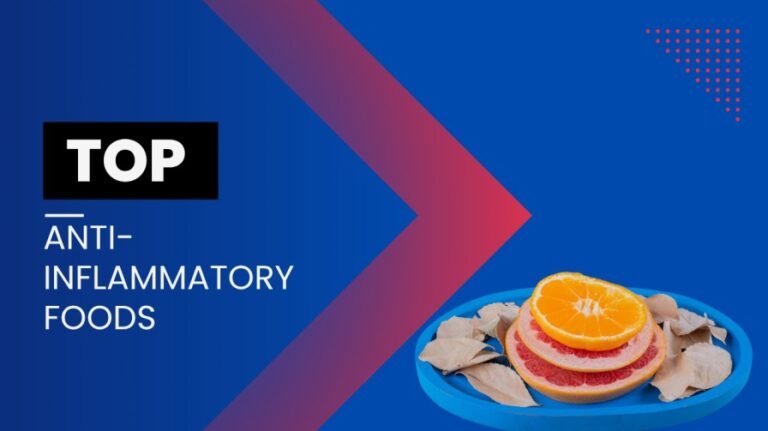How Proper Nutrition Strengthens Your Immune System

The immune system is your body’s natural defense against harmful invaders like viruses, bacteria, and other pathogens. When it’s functioning well, it helps prevent illness and promotes faster recovery. But for the immune system to work at its best, it needs the right fuel—and that fuel comes from proper nutrition.
In other words, what you eat has a direct impact on how well your immune system functions. A healthy, balanced diet rich in essential nutrients helps build and maintain a strong immune defense.
1. Nutrients That Power the Immune System
Several vitamins and minerals are crucial for immune health. Here are some of the most important:
- Vitamin C
This antioxidant vitamin supports the production and function of white blood cells, which fight infections. It also protects immune cells from damage caused by free radicals.
Sources: Oranges, strawberries, kiwi, bell peppers, broccoli. - Vitamin D
Plays a key role in activating immune defenses and helps regulate the immune response. A deficiency in vitamin D is linked to increased susceptibility to infections.
Sources: Sunlight, salmon, fortified dairy products, egg yolks. - Zinc
Essential for the development and function of immune cells. Zinc also helps wounds heal and supports the body’s ability to fight off viruses.
Sources: Meat, poultry, shellfish, legumes, seeds. - Vitamin A
Helps maintain the health of the skin and mucous membranes (the body’s first line of defense) and supports the function of white blood cells.
Sources: Carrots, sweet potatoes, spinach, liver. - Iron, Selenium, and Folate
These micronutrients support various immune processes, such as the production of antibodies and the development of healthy immune cells.
2. Gut Health and the Immune System
Your digestive tract is home to trillions of bacteria, known as the gut microbiota. These bacteria play a huge role in regulating the immune system.
- A diet high in fiber feeds the beneficial bacteria in your gut.
- Fermented foods like yogurt, kefir, sauerkraut, and kimchi contain probiotics—live bacteria that improve gut health.
- A healthy gut helps protect against harmful pathogens and improves your body’s immune responses.
3. Reducing Inflammation Through Antioxidants
Chronic inflammation can suppress the immune system, making you more vulnerable to infections and diseases. Certain foods can help reduce inflammation:
- Antioxidants neutralize free radicals and reduce cell damage.
- Foods rich in antioxidants include berries, leafy greens, nuts, seeds, and green tea.
- Spices like turmeric and ginger also contain anti-inflammatory compounds.
4. Protein for Immune Cell Production
Proteins are the building blocks of the immune system. Antibodies, enzymes, and certain immune cells are made from proteins. Without enough protein, your body may not be able to produce enough of these defense tools.
- Sources of healthy protein: Chicken, fish, eggs, dairy, beans, lentils, tofu, and nuts.
5. Healthy Fats and Immune Support
Healthy fats help absorb fat-soluble vitamins like A, D, E, and K, which are important for immune function. Omega-3 fatty acids also help regulate inflammation.
- Sources: Olive oil, avocados, fatty fish (like salmon), walnuts, and flaxseeds.
6. Hydration and Immune Efficiency
Staying well-hydrated supports all of your body’s systems, including the immune system. Water helps carry oxygen to your cells and remove toxins. Dehydration can lead to sluggish immune responses and fatigue.
- Aim to drink at least 6–8 cups of water a day, more if you’re active or ill.
7. Maintaining a Healthy Weight
Being either undernourished or overweight can negatively affect immune function. Obesity, in particular, is associated with chronic inflammation and impaired immune response. A nutrient-rich diet helps maintain a healthy weight and reduces the risk of developing conditions that can strain the immune system.
8. Limiting Harmful Foods
To support a strong immune system, it’s also important to limit foods that can weaken it:
- Excessive sugar and refined carbs can promote inflammation and reduce the effectiveness of white blood cells.
- Highly processed foods often lack nutrients and may contain unhealthy fats and additives.
- Excess alcohol and low-quality fats (like trans fats) can also impair immune responses.
Conclusion: Food Is Your First Line of Defense
Proper nutrition isn’t just about looking good or having energy—it’s a core part of your immune defense system. By eating a well-balanced diet full of fruits, vegetables, whole grains, lean proteins, and healthy fats, you provide your body with the tools it needs to:
- Defend against illness,
- Heal faster, and
- Stay strong and resilient year-round.






